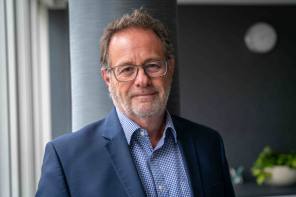

But despite several acquisitions, including a listed business, and the building up of its advice network, the Sesame model is far from Quilter executives’ minds.
Darren Sharkey, managing director of national advice business at Quilter Financial Planning, says: “We wouldn’t want to occupy the space that Sesame had. That’s not our model.
“Our model is that we believe in face-to-face financial advice, and we want to grow that business, both the network and the national.”
Quilter, which rebranded from Old Mutual Wealth last year, has several adviser businesses.
The network, which was originally acquired in 2014 as Intrinsic, has been called Quilter Financial Planning since July.
It is both a restricted and an independent advice network, while on the national side, it has been steadily building Quilter Private Client Advisers, a restricted business for high-net-worth clients; as well as the newly created Quilter Financial Advisers, established largely from the acquisitions of Charles Derby and Lighthouse Group, and intended to look after mass affluent clients.
Due diligence
A key issue for any large advice business is how to control the quality of advice and mitigate any complaints that may arise further down the line – something that forced Sesame to pull out of wealth advice.
Mr Sharkey says this has been well thought through.
“We believe the restricted proposition gives a more consistent and professional solution.
“It means we centrally decide which products are appropriate for clients, as well as the range of investment solutions, rather than each individual adviser doing the research.
“An independent financial adviser is personally responsible for researching the whole of the market for these clients.
“That’s a very high bar, and it’s expensive to do that well; there’s a place to do that for people with more complex needs, but for the majority of people, having centrally researched solutions means they will get a more consistent solution.”
Nonetheless, if a company is building its business quickly through acquisition, it may be buying in compliance issues.
But Mr Sharkey says this has been mitigated.
To start with, Charles Derby, which was acquired in February and brought with it 200 financial advisers, was one of the largest appointed representatives in its network.
“We knew that business well. They were already following our advice process and controls. With a private business such as Charles Derby, we do due diligence prior to completion.”
The same was not the case with Lighthouse Group, which was listed on the Alternative Investment Market, and while its public status may have made it easier to buy, Quilter was not able to complete the same level of due diligence.
Mr Sharkey says Quilter is open to Lighthouse advisers being restricted or independent.
Big spender
Quilter has spent a great deal of time and effort building its brand, and casting off the Old Mutual Wealth label.
But it has perhaps spent even more on buying Charles Derby and Lighthouse – £28m for the former and £46m for the latter.
What is the reason behind this? “Not nearly enough people are taking financial advice, especially as people are moving towards and planning for retirement.
“As we have moved away from annuities, people need advice about drawdown; they need to make long-term provision for their needs.
“We think financial advice plays a critical role for preparing for retirement and during the course of their retirement.”
But he admits that there can be considerable costs related to the provision of that advice.
As a consequence, while those with £350,000 or more to invest may find the service offered by Quilter Private Client Advisers appropriate, for many others further down the income scale, the advisory service operating under the Quilter Financial Advisers division will suit them better.
And some may be best served by a digital proposition being looked at by Quilter.
Emotional management
Mr Sharkey is a long-time employee, joining when the company was known as Skandia.
His track record in the business was in financial or commercial roles, starting in asset management and moving to general insurance.
Having been a chief finance officer at one of the divisions, how does he find being managing director?
“You have to have far more of a focus on the emotional element, not just the intellectual element,” he says.
“In finance you have a clear focus on the economics. As a managing director you’re responsible for bringing everyone on that journey.
“It’s helpful to have the financial background, but [this job] is also making sure you’re making the right decisions for all of your people.”
Melanie Tringham is features editor of Financial Adviser and FTAdviser.com



